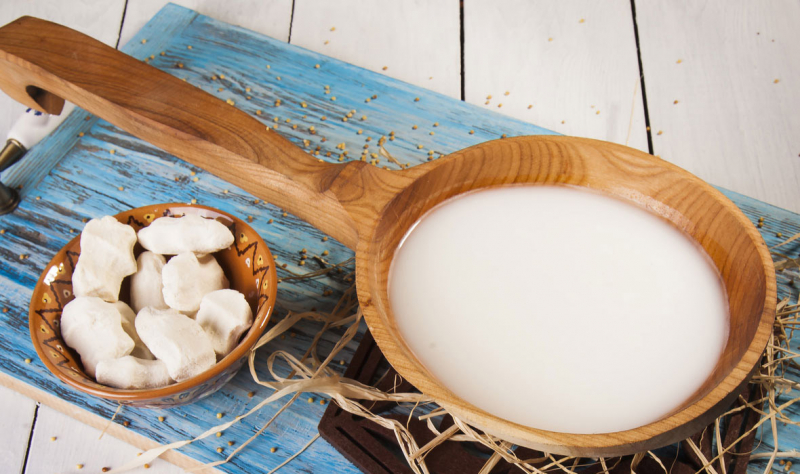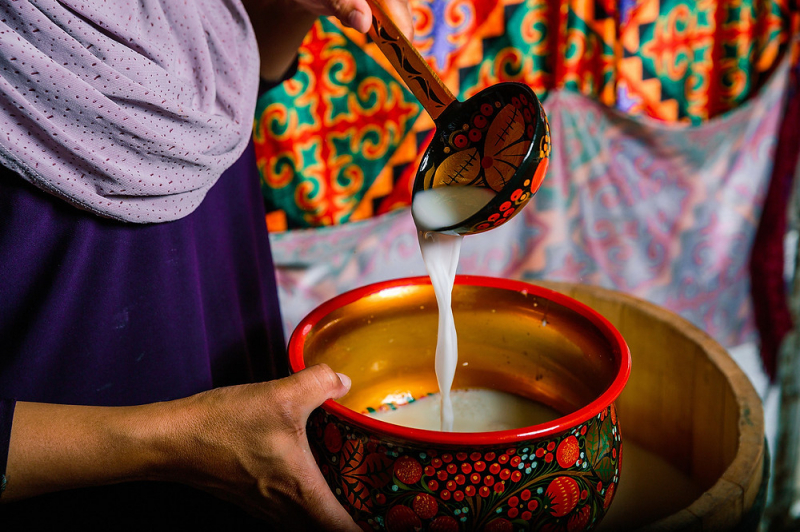Kumis

Kumis (also spelled koumiss or kumys) is a popular Kazakh beverage prepared from fermented mare's milk. For thousands of years, Turkic and Mongol nomads relied on it for refreshment and food.
Mare’s milk is naturally high in sugar and lactose. When ingested fresh, it has a strong laxative effect, but its high sugar content makes it easy to ferment. Fresh mare's milk would be held in vats until it acidified and generated alcoholic carbonation. Nomads would then transport the liquid in leather sacks and punch it from time to time to keep the kumis active.
Kumis has historically been a culturally significant drink for Central Asian nomads. It was common for nomads to invite friends and relatives to drink kumis at the start and end of each milking season. They exchanged the season's first and last kumis while exchanging blessings and well-wishes.
Kumis, like shubat, is well-known for its numerous health advantages. It is beneficial to the digestive and nervous systems and is reported to be effective in tuberculosis prevention. Mothers would even give their babies a milder version of kumis that was low in alcohol but not completely free of it.
Kumis used to have a larger alcohol content, but modern versions contain just about 2% alcohol. Commercial versions are now widely manufactured with fortified cow's milk, but kumis are still made in rural areas.











